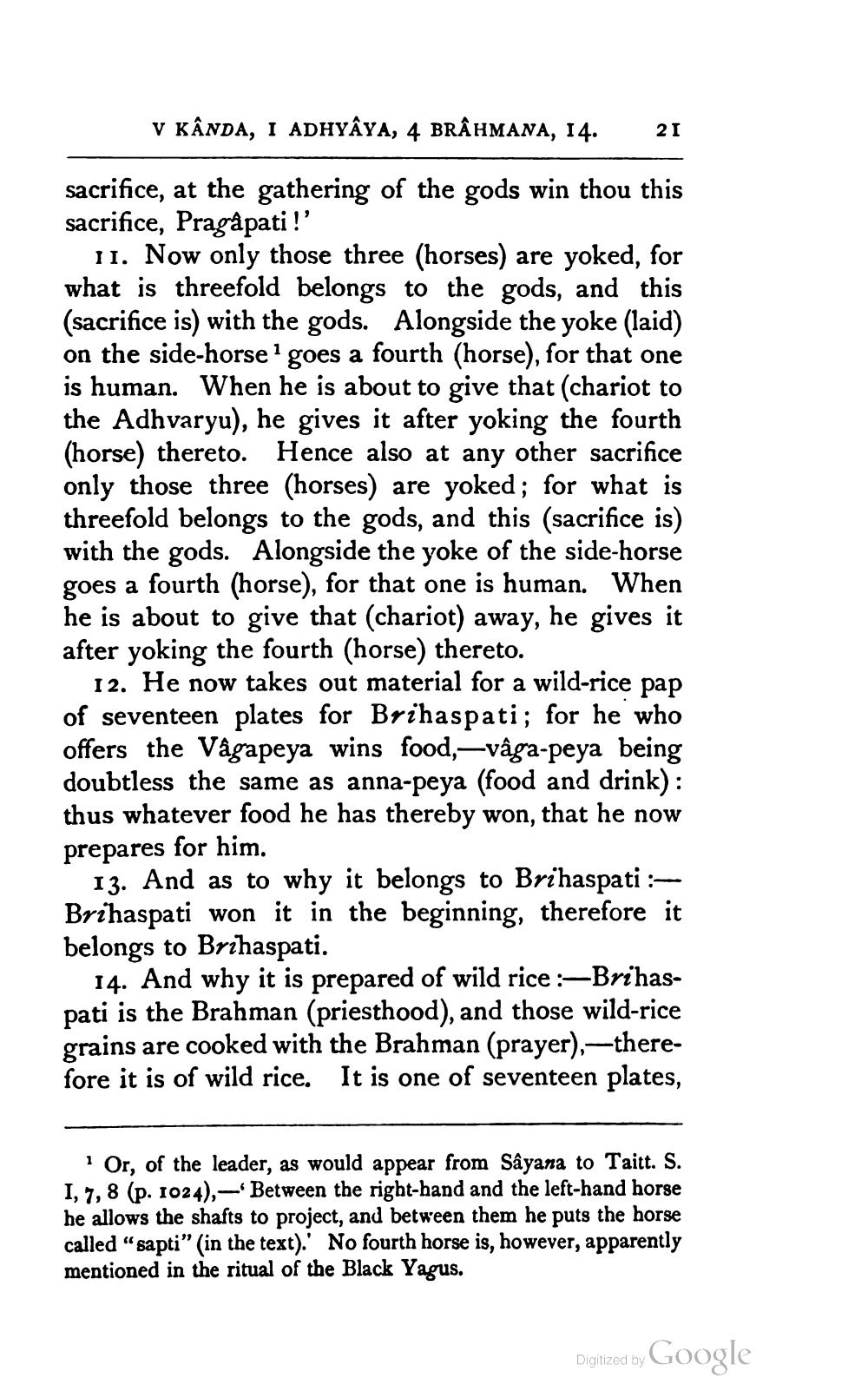________________
V KÂNDA, I ADHYÂYA, 4 BRÂHMANA, 14.
21
sacrifice, at the gathering of the gods win thou this sacrifice, Pragàpati !'
11. Now only those three (horses) are yoked, for what is threefold belongs to the gods, and this (sacrifice is) with the gods. Alongside the yoke (laid) on the side-horse' goes a fourth (horse), for that one is human. When he is about to give that (chariot to the Adhvaryu), he gives it after yoking the fourth (horse) thereto. Hence also at any other sacrifice only those three (horses) are yoked; for what is threefold belongs to the gods, and this (sacrifice is) with the gods. Alongside the yoke of the side-horse goes a fourth (horse), for that one is human. When he is about to give that (chariot) away, he gives it after yoking the fourth (horse) thereto.
12. He now takes out material for a wild-rice pap of seventeen plates for Brihaspati; for he who offers the Vâgapeya wins food,—vâga-peya being doubtless the same as anna-peya (food and drink) : thus whatever food he has thereby won, that he now prepares for him.
13. And as to why it belongs to Brihaspati :Brihaspati won it in the beginning, therefore it belongs to Brihaspati.
14. And why it is prepared of wild rice :-Brihaspati is the Brahman (priesthood), and those wild-rice grains are cooked with the Brahman (prayer),-therefore it is of wild rice. It is one of seventeen plates,
? Or, of the leader, as would appear from Sâyana to Taitt. S. 1,7,8 (p. 1024),- Between the right-hand and the left-hand horse he allows the shafts to project, and between them he puts the horse called “sapti" (in the text).' No fourth horse is, however, apparently mentioned in the ritual of the Black Yagus.
Digitized by Google




